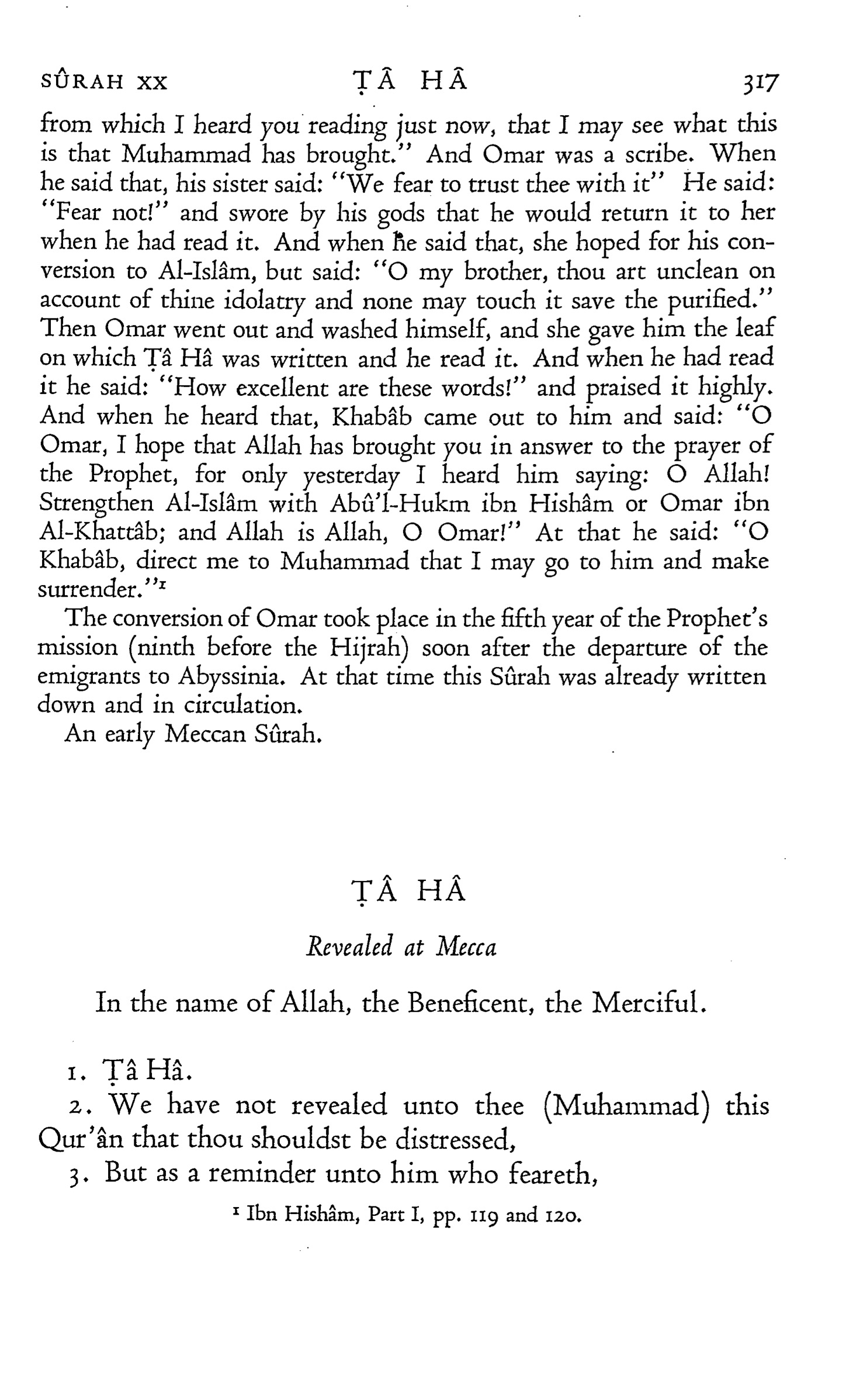Marmaduke Pickthall, The Meaning of The Glorious Koran. An Explanatory Translation (1930)
from which I heard you reading just now, that I may see what this is that Muhammad has brought.” And Omar was a scribe. When he said that, his sister said: “We fear to trust thee with it” He said: "Fear not!” and swore by his gods that he would return it to her when he had read it. And when fie said that, she hoped for his conversion to Al-Islâm, but said: “O my brother, thou art unclean on account of thine idolatry and none may touch it save the purified.” Then Omar went out and washed himself, and she gave him the leaf on which Ṭâ Hâ was written and he read it. And when he had read it he said: “How excellent are these words!” and praised it highly. And when he heard that, Khabab came out to him and said: “O Omar, I hope that Allah has brought you in answer to the prayer of the Prophet, for only yesterday I heard him saying: O Allah! Strengthen Al-Islâm with Abû’l-Hukm ibn Hishâm or Omar ibn Al-Khattâb; and Allah is Allah, O Omar!” At that he said: “O Khabâb, direct me to Muhammad that I may go to him and make surrender.”1
The conversion of Omar took place in the fifth year of the Prophet’s mission (ninth before the Hijrah) soon after the departure of the emigrants to Abyssinia. At that time this Sûrah was already written down and in circulation.
An early Meccan Sûrah.
Ṭâ Hâ
1. Ṭâ Hâ.
2. We have not revealed unto thee (Muhammad) this Qur’ân that thou shouldst be distressed,
3. But as a reminder unto him who feareth,
1 Ibn Hishâm, Part 1, pp. 119 and 120.
